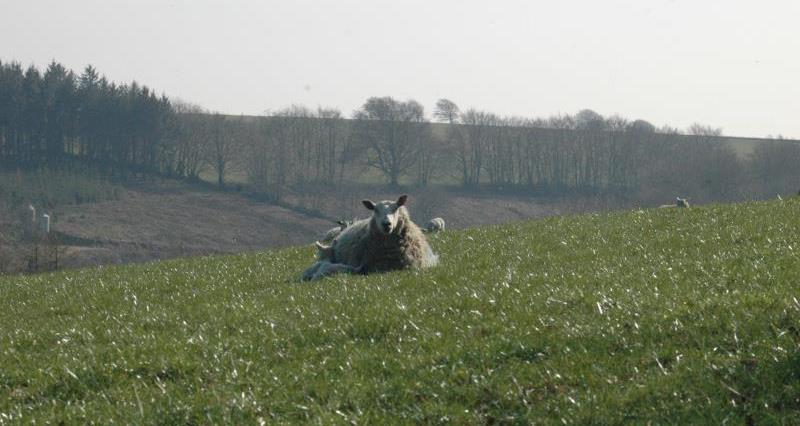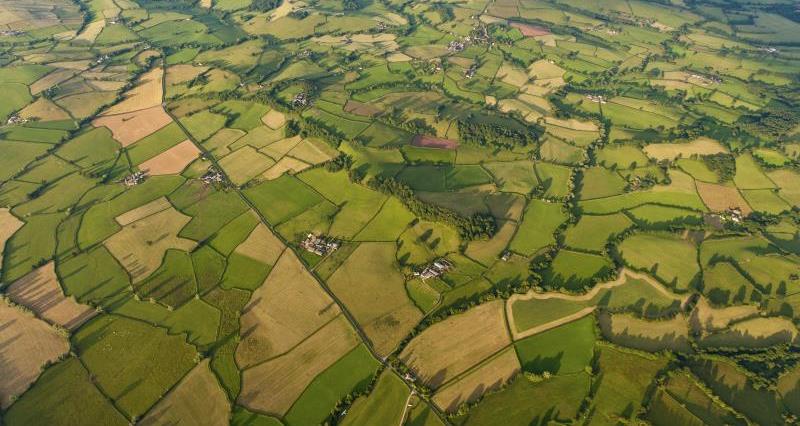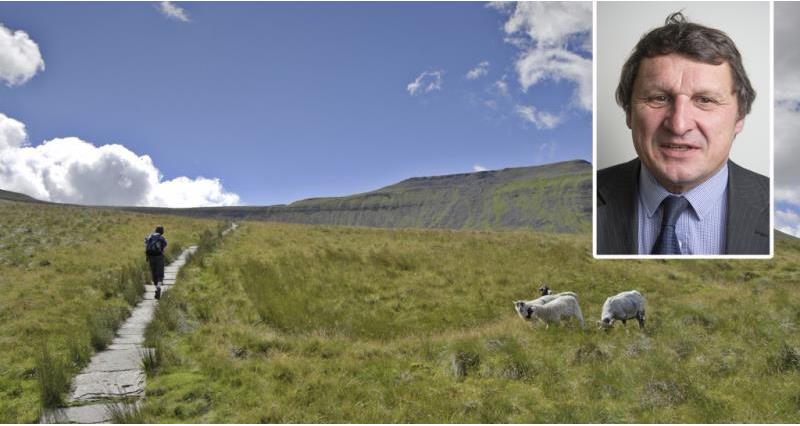"Farming on Exmoor is addictive – once a farmer always a farmer, and for many of us moving away is only short term and you return even more determined not to leave again. I am fortunate enough to live and farm on Exmoor keeping Lleyn sheep, Aberdeen Angus cattle and for some reason I have never been able to fathom, Exmoor ponies.
Our family has farmed on Exmoor for several generations at West Anstey, Molland and Withypool, and whilst evidently not making a fortune, we are still here. My son is now the farmer in our business having also returned to Exmoor and the next generational handover has taken place – a situation often desired but not always achieved.
The greatest farming challenge is economic survival and although this has not changed in decades, it seems the pressures and risks are greater than ever, with increasing compliance regimes for both agricultural and environmental management and countless stakeholders having an interest in determining our future. With hill farm incomes at levels below the average UK wage it seems job satisfaction must be high, although this will no longer be enough to encourage the next generation to farm here where house prices average in excess of ten times the average wage. I would suggest that whilst the way of life may be envied then the income will not – the turnover of a 250-ewe flock is less than the average national wage, and that is before any costs are taken into account.

Exmoor farming faces some very specific constraints beyond our control. We have comparatively small fields surrounded by hedges and banks that are expensive to maintain in a climate that is frequently challenging. Farm size and topography are not ideal, environmental expectation is increasing and in spite of the best intentions of the planners, it seems housing accessibility for young people is diminishing as house prices increase. It seems that the National Park Effect has been so successful in highlighting the value of the area that we live in that those who manage the landscapes can no longer afford to live there. Million pound houses in the home counties make small farms look affordable to those buyers, but financially unviable to farmers. But will the treasured farmed landscapes of Exmoor be perpetuated in this way?
During my lifetime farming practices have changed immensely with more recent changes being documented in studies by Exeter University in 2004 and CCRI in 2014. The results were not entirely as expected with increasing numbers of younger larger scale farmers taking control of businesses and an unprecedented degree of optimism. Sheep farming predominates with cattle being secondary in most businesses and varying degrees of farm diversification support many farming enterprises. But, it must be remembered that the majority of diversification depends on the farming business that it supports.
The resilience and entrepreneurial attitude of Exmoor farmers is beyond question. After all, farmers diversified into tourism before the experts suggested it and even before National Park status was granted. Recognition of opportunities has and will continue to be part of farming on Exmoor, whether it be in farming, tourism, shooting, local food or environmental benefit. The reality is that every tool in the box will be needed to perpetuate what is at the core of Exmoor life – farming.
The realities of actually farming on Exmoor are somewhat different from the picture-postcard image portrayed so often by those selling Exmoor. After all, the idyllic summer scenes of endless sunshine and sociable harvest lunches have been superseded by endless lonely hours in a tractor in a frantic effort to beat the impending rain, and those stunning snow-covered landscapes are actually bitterly cold and come with frozen pipes and hungry animals. But for those of us farming that is our choice and the natural environment is both a good friend and an unforgiving enemy. Playing weather poker is intrinsic in day-to-day decision making especially when it seems climate change has made winters warmer and wetter and summers colder and wetter, with even the mighty power of the Met Office’s supercomputer being unable to guarantee the outcomes expected. And market prices for beef and lamb have become so volatile as to be impossible to forecast with reasonable accuracy – what other business lives with incomes that can fluctuate by 50 per cent per year. It is variables such as these, beyond our control, that are stoically accepted as part of farming.

The impact of external stakeholders on Exmoor farming is increasing with the TB control debate outcome likely to determine the future of the diminishing beef suckler herds, and the moorland sheep flocks being blamed by the environmental lobby for eating the biodiversity or even causing flooding. The moorland burning debate and the rewilding lobby suggesting lynx may return are making farmers feel under greater pressure and less valued than ever, even though it must be remembered ultimately that Exmoor National Park was designated for value of the landscape formed by centuries of farming – it is our workplace and our livelihood so we will look after it.
The unseen part of farming determines current viability with a frighteningly bureaucratic system of rules and compliance overseeing every move. By the time DEFRA, Environment Agency, Natural England, Trading Standards, BCMS and ARAMS (each and every farm animal movement is reported to Government through these systems), Farm Assurance and many others have dealt their hands and inspected farmers it is understandable that the regulatory red tape seems determined to find something wrong whilst the pile of paper increases exponentially. Politicians and civil servants, it appears, are still not able to trust farmers, an interesting enigma when you consider those particular professions’ records.
The situation is ever changing, and with the relative security of a heavily regulated EU membership being replaced by Brexit then EU regulation may not need to strike such fear. The opportunity to determine a sustainable future for the next generation farmers of Exmoor is there and it must not be wasted. After all, the true reality of farming on Exmoor is that farmers last longer than politicians and I would hope many more generations of farmers continue the proud tradition of farming."
NFU joins call for RPA to finalise Commoners BPS claims. Read more here.
